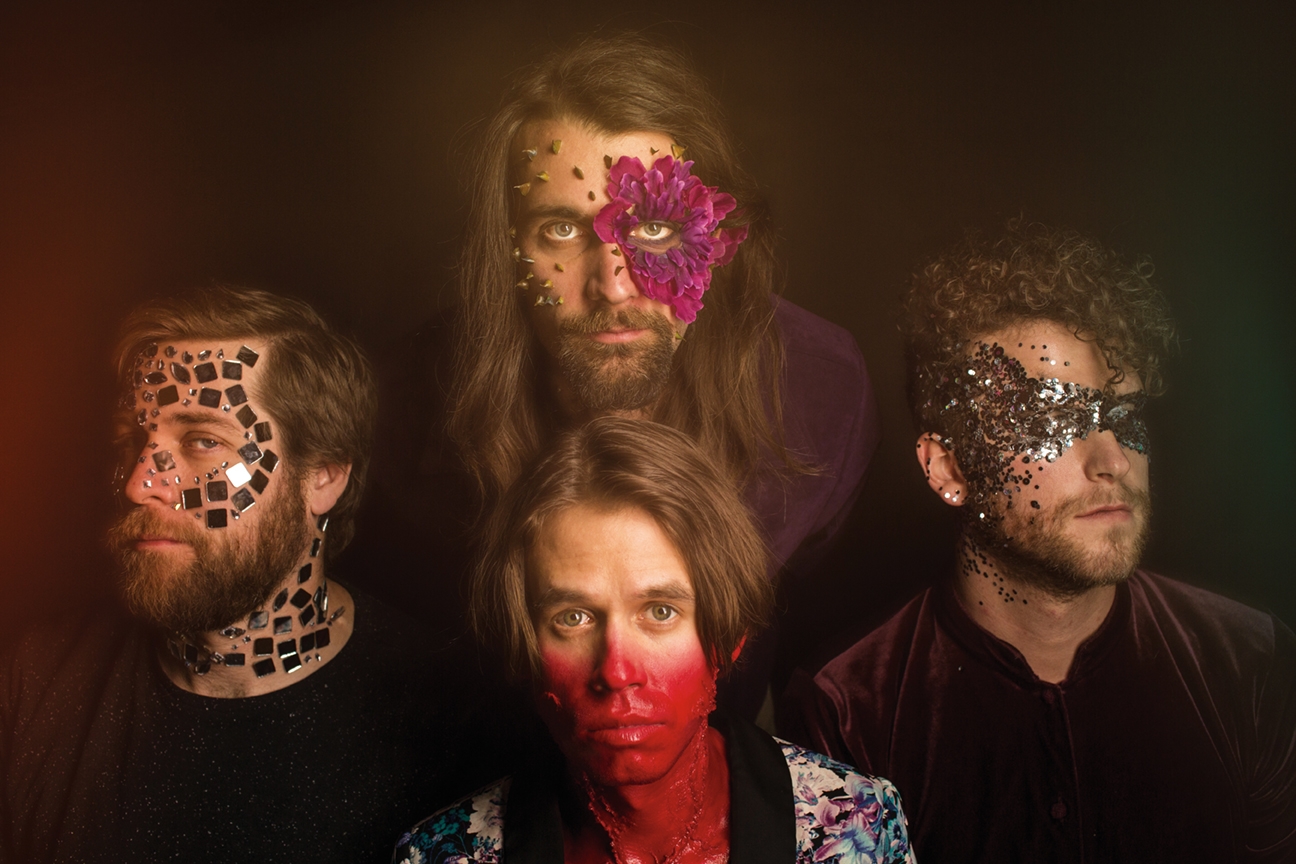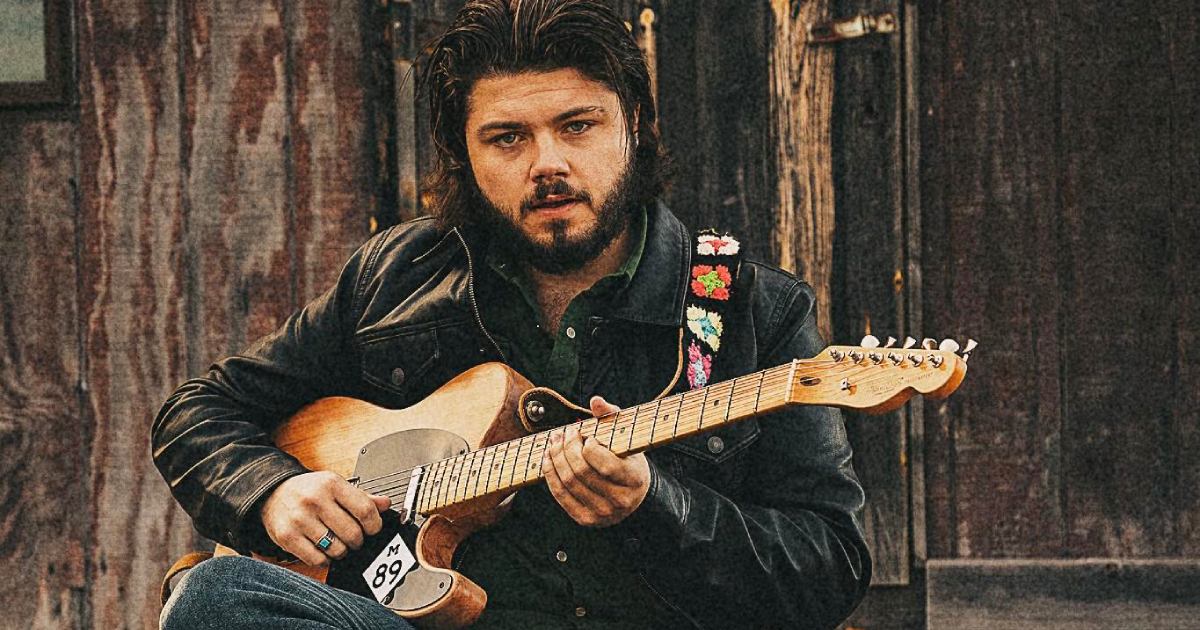When talking with frontman/singer/songwriter Graham Parsons, it’s easy to get lost in road stories.
From the time his band played four shows in 24 hours across the Upper Peninsula while hungover on moonshine, to the time they drove 16 hours from a gig in Denver to make a taping of the popular online series Jam in the Van in Los Angeles, to the time the band discovered the “infinitesimal life, love thread that connects all things” with a medicine man in Taos, N.M., The Go Rounds’ adventures are as endlessly engaging as they are wildly wondrous.
In the decade since its inception, the Kalamazoo psychedelic-rock outfit really has seen it all.
But before the bandmates belted out the Celine Dion classic My Heart Will Go On in Toronto alongside rising indie star Caroline Rose on the final day of their joint tour together last year — or before they trekked down to Mexico, stayed up all night listening to Mariachi, drinking Mezcal and climbing the sacred pyramids at dawn — The Go Rounds got its start like so many other bands: playing basements and bars.
Parsons grew up on a farm in the UP’s Keweenaw Peninsula. He now hosts the annual Farm Block Music Festival there in honor of his departed friend Dan Schmidtt, who died in a car accident a day before he was set to move to Kalamazoo with Parsons. The loss served as inspiration for the young singer/songwriter, who enlivened Kalamazoo’s music scene upon his arrival in 2007.
Helping foster both the city’s now-legendary defunct venue The Strutt and the expansively collaborative Double Phelix Collective — as well as founding the Dan Schmidtt Gift of Music and Education Fund — Parsons soon began building up a community of like-minded musicians and artists in the area.
“I’ve become who I am today by working to emulate and reflect the energetic wonderment and altruistic behaviors of my peers, bandmates and greater music support network,” Parsons said.
Citing West Michigan music luminaries like Seth Bernard, May Erlewine, Andy Catlin, Sam Cooper, Mark “Huggy Bear” Lavengood and many others, he explained that those relationships through music mean everything.
“I wouldn’t be alive without these people and so many more that have had an equally profound effect on me,” he said. “I can't take credit for much.”
Modesty aside, Parsons can take credit for the continuing triumph of The Go Rounds. He formed the band in 2009 alongside drummer Adam Danis. Bassist Drew Tyner joined up in 2013, while lead guitarist Mike Savina solidified the lineup in 2014.
“I used to only write songs on acoustic guitar or piano,” Parsons said of his songwriting origins. “I cut my teeth learning a ton of folk and old country tunes, singing around the blue-gold fires of Michigan summers.”
The band had a decidedly more Americana and rockabilly sound early on, but with its 2014 LP, Purple Mountain Travesty, began exploring more drum programming, sampling and utilizing the studio as its own space.
“The evolution of our sound has been gradual and organic,” Parsons said. “We’re continuously reaching for the textures and colors we want to hear and see. Each new song presents us not with the task of making something that sounds new and feels exciting to us, but rather with another opportunity to stretch, to experiment, to create something coherent and harmonious from nothing.
“We’ve never sat down together and said, ‘OK, now we’re going to go in a more ambient/electronic direction ’cause that’s a recognizable trend’,” he added. “Never once have I thought or uttered, ‘OK, now let’s go for a Tame Impala vibe on this one.’ Nah. We’ve never been accused of being ‘indie darlings.’ We’ve got no one to please or seek approval from. Our ‘brand’ is our music.
“Our fans are our family and essential counterpart. We know they’re in it for the story, for the long view, not for some alternating hi-hat-snare fake-ass disco groove or four-on-the-floor vapid chant-folk-nightmare.”
Long in the making, The Go Rounds issued its latest album, Whatever You May Be, earlier this year.
Rhythm tracking for the record first took place in late 2016 at High Bias Studio in Detroit with Chris Koltay, who has worked with bands like The War on Drugs, Deerhunter, Kurt Vile and more. After playing more than 100 shows in 2017, the band eventually finished recording at Dream Louder Studios in Toledo with Ben Cohen, dubbed “the fifth Go Round” for his essential part in the band’s last three releases.
Parsons struggled with the new album’s title for a while, unable to encapsulate the essence or define the body of work. Having written some of the songs nearly four years ago, he felt removed from the project, and couldn’t quantify what he had experienced while creating the album in a succinct or snappy phrase.
“My epiphany moment with the title came after I allowed myself to let it go, to just be what it was without trying to impress too much of my current emotional state upon it,” he said. “The record had morphed and changed meaning since its inception and I realized that was OK. I knew the songs held power. I knew we had taken great care in capturing the sounds and feelings we wanted. I had to let it be what it was, regardless of whether or not I recognized it as I thought I would.
“Same goes for this strange and trying path as a human,” he added. “It feels a lot easier to go on living if we trust that we will end up exactly who and where we should be, whatever or wherever that is.”





